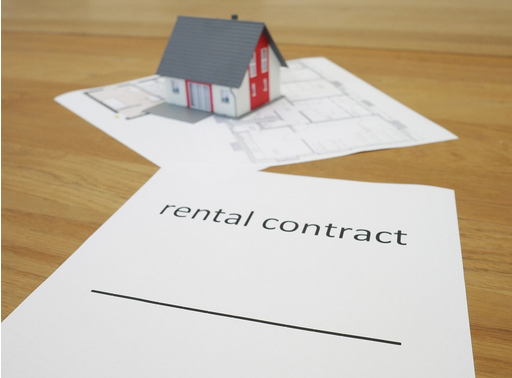Investing in real estate can be highly rewarding, yet it comes with responsibilities beyond financial gain. Ethical practices are increasingly becoming a cornerstone of successful property investment, influencing profitability, reputation, and long-term sustainability. Investors who prioritize transparency, fairness, and social responsibility create value that benefits communities and the market alike. For those looking to engage in real estate transactions responsibly, versteigerungspool.de provides guidance on safe and sustainable property purchases. Understanding and implementing ethical strategies can profoundly impact both the investor and the wider industry. The following roles highlight why ethical considerations are essential in real estate investment.
Promoting Transparency in Transactions

Transparency is fundamental in maintaining trust between buyers, sellers, and intermediaries. Investors communicating clearly about property conditions, legal terms, and financial arrangements reduce misunderstandings and disputes. This approach fosters confidence and strengthens relationships within the market. Transparency also involves disclosing potential risks, previous property history, and any legal encumbrances. By adhering to these practices, investors create a more predictable environment, facilitating smoother transactions and long-term credibility.
Supporting Social Responsibility
Ethical investors are mindful of the social impact of their decisions. This includes respecting previous owners, avoiding exploitative practices, and considering the local community’s needs. For instance, properties obtained through foreclosure or auctions require careful handling to balance investment opportunities with empathy for displaced individuals. Investors can implement measures that promote fairness, such as reinvesting in community projects or prioritizing renovations that improve neighborhood standards. Acting responsibly helps cultivate a market that values integrity and benefits society.
Encouraging Sustainable Development

Environmental considerations are increasingly intertwined with ethical investment practices. Choosing properties or developments that emphasize energy efficiency, sustainable materials, and ecological design contributes to broader environmental goals. Ethical investors assess the long-term impact of their projects, minimizing harm to natural resources while enhancing property value. Sustainability also aligns with market demand, as buyers and tenants progressively favor environmentally conscious properties. Green initiatives demonstrate foresight and social responsibility while strengthening the investor’s brand.
Mitigating Legal and Financial Risks
Ethical practices reduce exposure to legal disputes and financial missteps. Investors who adhere to regulations, verify property titles, and conduct thorough due diligence protect themselves from costly litigation and reputational damage. Responsible documentation, accurate reporting, and compliance with local property laws are critical elements of an ethical approach. By maintaining high standards, investors protect their interests and uphold the integrity of the real estate market. These preventive measures provide a foundation for safe, predictable, and sustainable investment growth.
Enhancing Market Confidence and Reputation
 An investor’s reputation is one of the most valuable assets in real estate. Ethical behavior attracts like-minded partners, quality tenants, and discerning buyers. Investors known for fairness, transparency, and social responsibility are likely to gain access to exclusive opportunities and favorable deals. Over time, a strong reputation reduces transaction friction, builds stakeholder trust, and ensures longevity in a competitive market. Ethical investors create a virtuous cycle, where responsible behavior reinforces credibility, providing financial and societal benefits.
An investor’s reputation is one of the most valuable assets in real estate. Ethical behavior attracts like-minded partners, quality tenants, and discerning buyers. Investors known for fairness, transparency, and social responsibility are likely to gain access to exclusive opportunities and favorable deals. Over time, a strong reputation reduces transaction friction, builds stakeholder trust, and ensures longevity in a competitive market. Ethical investors create a virtuous cycle, where responsible behavior reinforces credibility, providing financial and societal benefits.
Ethical practices in real estate investment are no longer optional but essential for sustainable success. Promoting transparency, supporting social responsibility, prioritizing sustainability, mitigating legal risks, and enhancing reputation are five critical roles that illustrate the value of ethical decision-making. Investors who integrate these principles into their strategies protect their financial interests and contribute positively to communities and the overall market. Embracing ethics strengthens trust, encourages fairness, and positions investors to achieve long-term growth while fostering a more responsible and equitable real estate industry.…



 CO₂-saving homes achieve low carbon footprints through smart design. High-performance insulation, energy-efficient windows, and airtight construction are common features. Renewable energy sources like solar panels or heat pumps reduce reliance on fossil fuels. Together, these elements lower emissions and operational costs. This unique combination makes CO₂-saving homes highly desirable.
CO₂-saving homes achieve low carbon footprints through smart design. High-performance insulation, energy-efficient windows, and airtight construction are common features. Renewable energy sources like solar panels or heat pumps reduce reliance on fossil fuels. Together, these elements lower emissions and operational costs. This unique combination makes CO₂-saving homes highly desirable.







 One of the most important things you can do to maintain or increase the value of your home is to keep it in good repair. This means regularly fixing any issues, such as leaks, cracks, or damage. It also means keeping up with trends by painting the walls or replacing old appliances.
One of the most important things you can do to maintain or increase the value of your home is to keep it in good repair. This means regularly fixing any issues, such as leaks, cracks, or damage. It also means keeping up with trends by painting the walls or replacing old appliances. Energy efficiency is becoming increasingly important to buyers, so making your home more energy-efficient is an excellent way to increase its value. If your home has good energy efficiency, it will make an excellent first impression and be more likely to sell for a higher price.
Energy efficiency is becoming increasingly important to buyers, so making your home more energy-efficient is an excellent way to increase its value. If your home has good energy efficiency, it will make an excellent first impression and be more likely to sell for a higher price. If you increase the size of your home, such as by adding an addition or finishing the basement, do it. It will make your home more valuable and appealing to potential buyers. Instead of tearing down walls to create an open floor plan, consider adding. This will give you the extra space you desire without compromising the value of your home.
If you increase the size of your home, such as by adding an addition or finishing the basement, do it. It will make your home more valuable and appealing to potential buyers. Instead of tearing down walls to create an open floor plan, consider adding. This will give you the extra space you desire without compromising the value of your home.


 The first thing you should think about when installing a new driveway is its purpose. You might think that the objective is to provide a parking space for a car, but there are a few more factors to consider. Occasionally, a driveway could be used as a turning point or could be the place where you keep your boat. The purpose and general use of your driveway should be considered when choosing the right equipment for your driveway. If you want to build a more visually attractive driveway, you can prefer brick, stone, concrete, or asphalt, depending on your choice. The level of pedestrian and automotive use of your driveway will influence the type of material you choose to make it more attractive.
The first thing you should think about when installing a new driveway is its purpose. You might think that the objective is to provide a parking space for a car, but there are a few more factors to consider. Occasionally, a driveway could be used as a turning point or could be the place where you keep your boat. The purpose and general use of your driveway should be considered when choosing the right equipment for your driveway. If you want to build a more visually attractive driveway, you can prefer brick, stone, concrete, or asphalt, depending on your choice. The level of pedestrian and automotive use of your driveway will influence the type of material you choose to make it more attractive. Your driveway should reflect your design while adapting to the limitations of your home and location. Fortunately,
Your driveway should reflect your design while adapting to the limitations of your home and location. Fortunately, 
 The biggest advantage that real estate investments have over other types of investments is that they cannot be easily converted into money, so the investor is forced to manage his investment. Once engaged in an investment, the investor is forced to meet his monthly obligations, even if it means giving up the rest of his free time. Real estate investments are subject to an increase in value.
The biggest advantage that real estate investments have over other types of investments is that they cannot be easily converted into money, so the investor is forced to manage his investment. Once engaged in an investment, the investor is forced to meet his monthly obligations, even if it means giving up the rest of his free time. Real estate investments are subject to an increase in value. For those who want to make a profit from investing, this is the right time to buy. You could buy a property at a very low price to rent it and get a positive cash flow, keep it for a long term profit, or perhaps trade it for a quick profit. Some people buy properties that need repairs, have them repaired quickly, and then offer them for an acceptable profit.
For those who want to make a profit from investing, this is the right time to buy. You could buy a property at a very low price to rent it and get a positive cash flow, keep it for a long term profit, or perhaps trade it for a quick profit. Some people buy properties that need repairs, have them repaired quickly, and then offer them for an acceptable profit.

 The timing and commitment may be judged by the comments and opinions of this professional’s clients that you are likely to use. If you understand that the contractor or builder has received testimonials or complaints about contract deadlines, it is best to stop them. Remember that you will end up paying when contractors finish the program. Your work may be affected by changing weather conditions. By avoiding contractors who are not busy, you can save time and money. On the other hand, a dedicated contractor can finish the job and protect you from frustration and stress.
The timing and commitment may be judged by the comments and opinions of this professional’s clients that you are likely to use. If you understand that the contractor or builder has received testimonials or complaints about contract deadlines, it is best to stop them. Remember that you will end up paying when contractors finish the program. Your work may be affected by changing weather conditions. By avoiding contractors who are not busy, you can save time and money. On the other hand, a dedicated contractor can finish the job and protect you from frustration and stress. Trust and Reputation
Trust and Reputation


